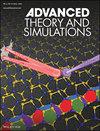预测心理健康的智能物联网框架
IF 2.9
4区 工程技术
Q1 MULTIDISCIPLINARY SCIENCES
引用次数: 0
摘要
克罗恩病是一种影响胃肠道的慢性炎症性疾病,由于其复杂和多因素的病因,在诊断和治疗方面都提出了重大挑战。克罗恩病的早期识别是至关重要的,因为它可以导致及时干预,改善患者的治疗效果,并降低医疗成本。本研究旨在利用高级分析、机器学习(ML)和临床数据开发预测模型,以识别有克罗恩病风险的个体。提出的框架整合了各种数据源,包括遗传易感性、微生物组概况、环境因素和临床标志物,如炎症生物标志物、内窥镜检查结果和患者报告的症状。我们采用有监督的机器学习算法,包括随机森林、支持向量机(SVM)和深度学习模型,来分析来自多个队列的回顾性数据集。结果表明,这些预测模型在识别早发性克罗恩病方面具有很高的敏感性和特异性。确定的关键预测因素包括特定的基因突变(如NOD2/CARD15)、肠道菌群失衡和C反应蛋白(CRP)水平升高。从Kaggle网站获得的一对膝关节x光照片被用来评估建议的ZMPPM。最后,根据准确性、F1分数、召回率、精度、特异性和错误率等指标对性能进行评估。该模型的准确度达到99%,误差相对较小。本文章由计算机程序翻译,如有差异,请以英文原文为准。
A Smart Intelligent Internet of Things Framework for Predicting Mental Health
Crohn's disease is a chronic inflammatory condition affecting the gastrointestinal tract, and it presents significant challenges in both diagnosis and management due to its complex and multifactorial causes. Early identification of Crohn's disease is crucial, as it can lead to timely interventions, improve patient outcomes, and reduce healthcare costs. This study aims to develop predictive models using advanced analytics, machine learning (ML), and clinical data to identify individuals at risk for Crohn's disease.The proposed framework integrates a variety of data sources, including genetic predispositions, microbiome profiles, environmental factors, and clinical markers such as inflammatory biomarkers, endoscopic findings, and patient‐reported symptoms. We employed supervised ML algorithms, including random forests, support vector machines (SVM), and deep learning models, to analyze retrospective datasets from multiple cohorts.The results indicate that these predictive models can achieve high sensitivity and specificity in identifying early‐onset Crohn's disease. Key predictors identified include specific genetic mutations (e.g., NOD2/CARD15), imbalances in gut microbiota, and elevated levels of C‐reactive protein (CRP).A pair of knee x‐ray pictures obtained from the Kaggle website are utilised to assess the proposed ZMPPM. Finally, the performance is evaluated based on metrics like accuracy, F1‐score, recall, precision, specificity and error rate. The model attained an excellent accuracy of 99% with relatively minor error.
求助全文
通过发布文献求助,成功后即可免费获取论文全文。
去求助
来源期刊

Advanced Theory and Simulations
Multidisciplinary-Multidisciplinary
CiteScore
5.50
自引率
3.00%
发文量
221
期刊介绍:
Advanced Theory and Simulations is an interdisciplinary, international, English-language journal that publishes high-quality scientific results focusing on the development and application of theoretical methods, modeling and simulation approaches in all natural science and medicine areas, including:
materials, chemistry, condensed matter physics
engineering, energy
life science, biology, medicine
atmospheric/environmental science, climate science
planetary science, astronomy, cosmology
method development, numerical methods, statistics
 求助内容:
求助内容: 应助结果提醒方式:
应助结果提醒方式:


